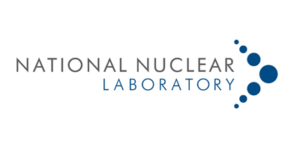Sunday 25 May 2014
Nuclear Specialists Join Forces
The University of Sheffield has signed a collaborative agreement with the National Nuclear Laboratory (NNL) – based at Sellafield – to share knowledge and develop opportunities in a specialist field of the industry.
They have agreed to work closely together on a range of key areas including radioactive waste immobilisation and disposal.
Waste immobilisation features the technologies of vitrification, cementation and the use of ceramics in the treatment of nuclear waste to allow for long-term storage.
The University of Sheffield Immobilisation Science Laboratory (ISL) has become acknowledged worldwide as a centre of research and development in its field. The ISL was inaugurated in 2001 as a research alliance and continues to receive support from the NNL through the provision of research projects.
Part of the mission of the NNL is to strengthen collaboration with academia, and the two organisations believe that collaborative ventures in their respective areas of expertise can be to their mutual benefit.
The joint team approach sees the university providing fundamental research and the NNL the support for applied research and development.
Professor Keith Burnett, Vice-Chancellor of the University of Sheffield, said: “The University’s Immobilisation Science Laboratory has worked closely with NNL and its forebears to provide training and innovative research in the field of nuclear waste immobilisation and management. This partnership will further strengthen the collaboration and provide opportunities for exciting new developments as the UK moves towards new nuclear build.”
Dr Peter Bleasdale, managing director of the National Nuclear Laboratory, said: “We have been working with the university for almost eight years and this builds on the work already being undertaken together.”
“The combination of our relative skills and expertise and the opportunities that presents cannot be underestimated. At the same time we can help the process of knowledge sharing we believe is so important in this field.”
The two organisations will work together to maximise the support and funding available from a variety of sources including industrial customers, EU, governments and research councils. Specific research and development areas will include immobilisation of radioactive wastes using glass, ceramics, cements and novel wasteforms, product performance and behaviour of waste forms during disposal.
The NNL will also contribute to course content at the university covering waste immobilisation technology through lectures, seminars, projects and other interactions that enhance the course content.
Students will also receive support through bursaries, awards and vocational placements at NNL establishments.
The university and the NNL will identify students judged to be worthy of these incentives andthe university will assist the NNL in mentoring students throughout their degree course.
Secondment or placement of personnel in each others establishments will also be considered including visiting roles to gain maximum potential of facilities and equipment.

